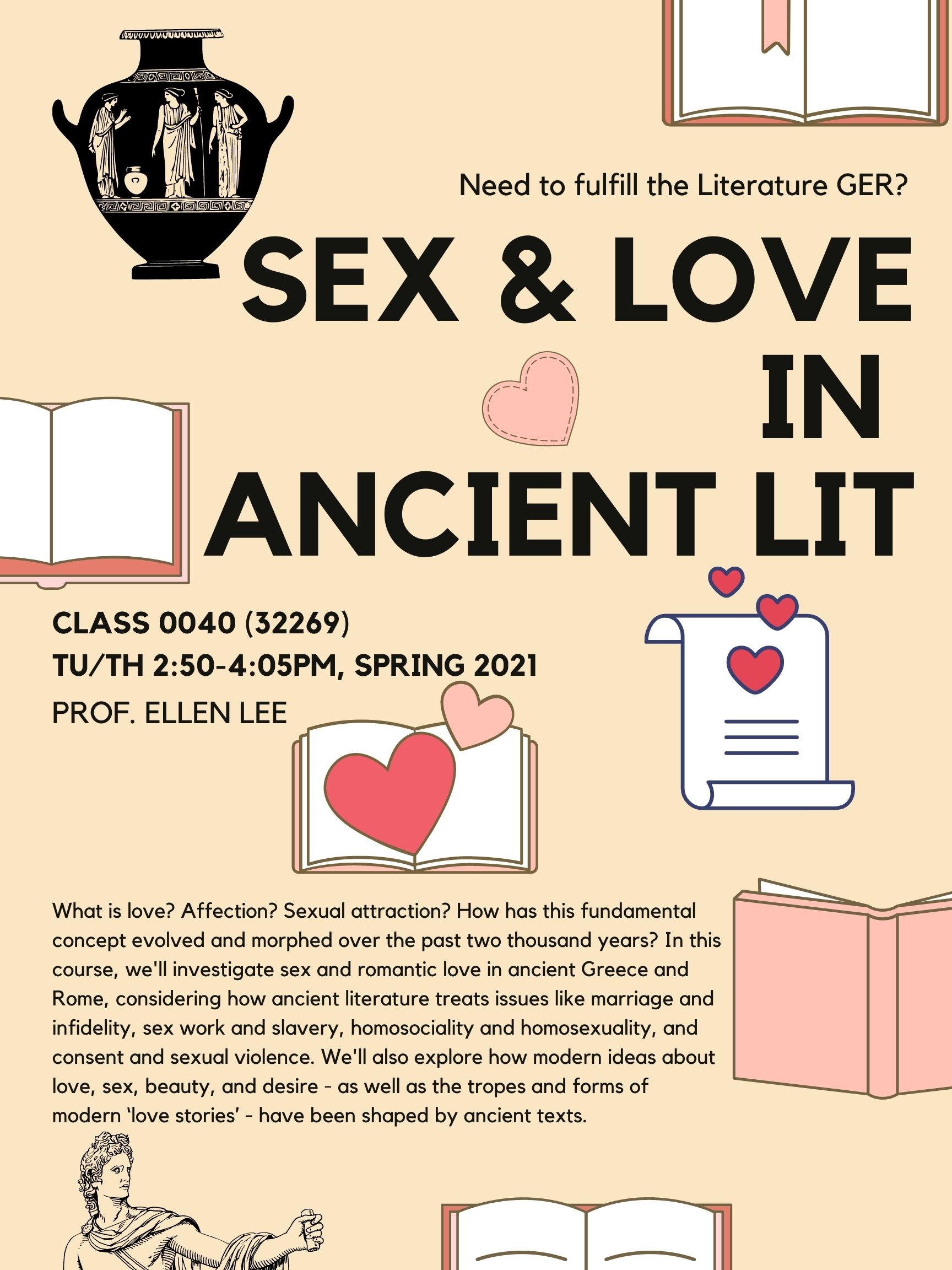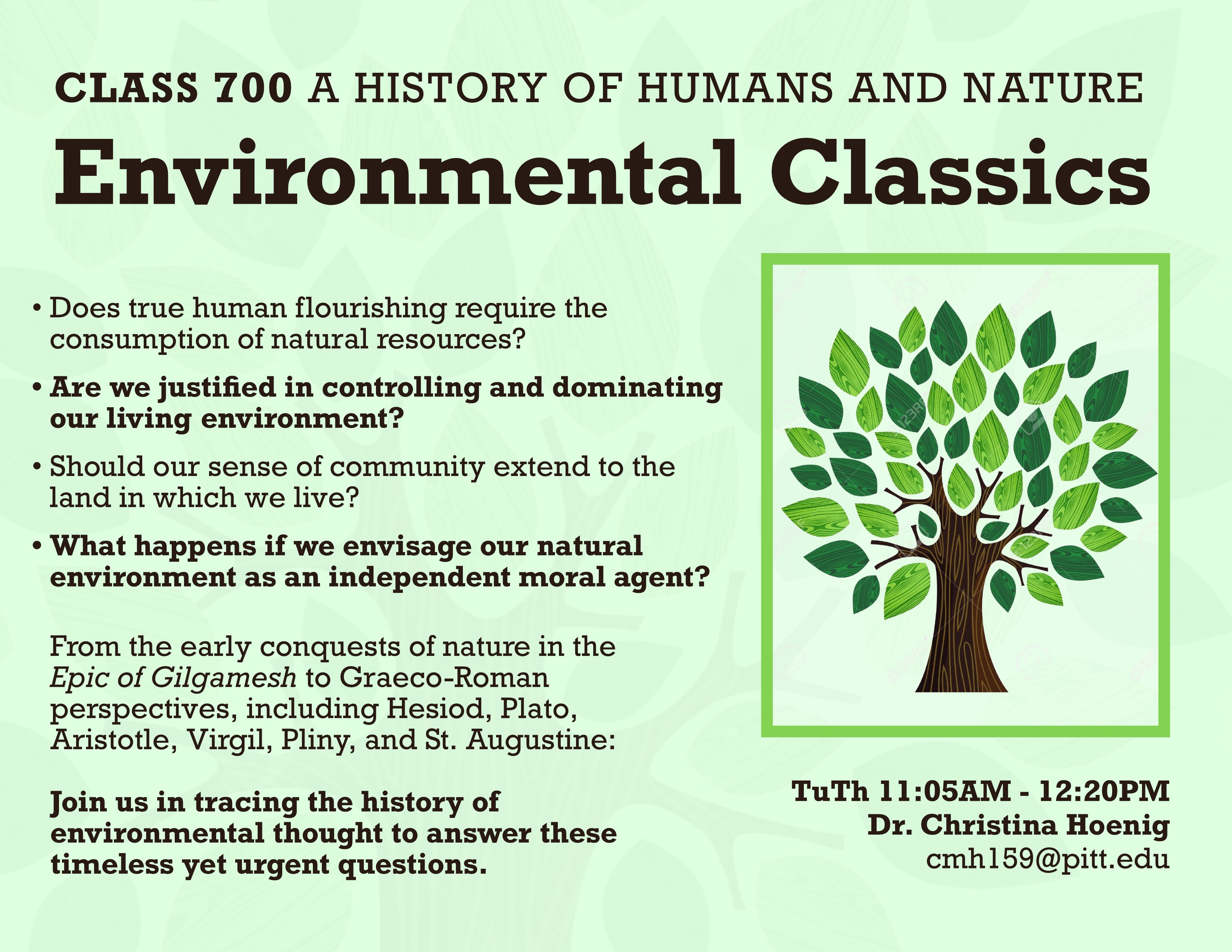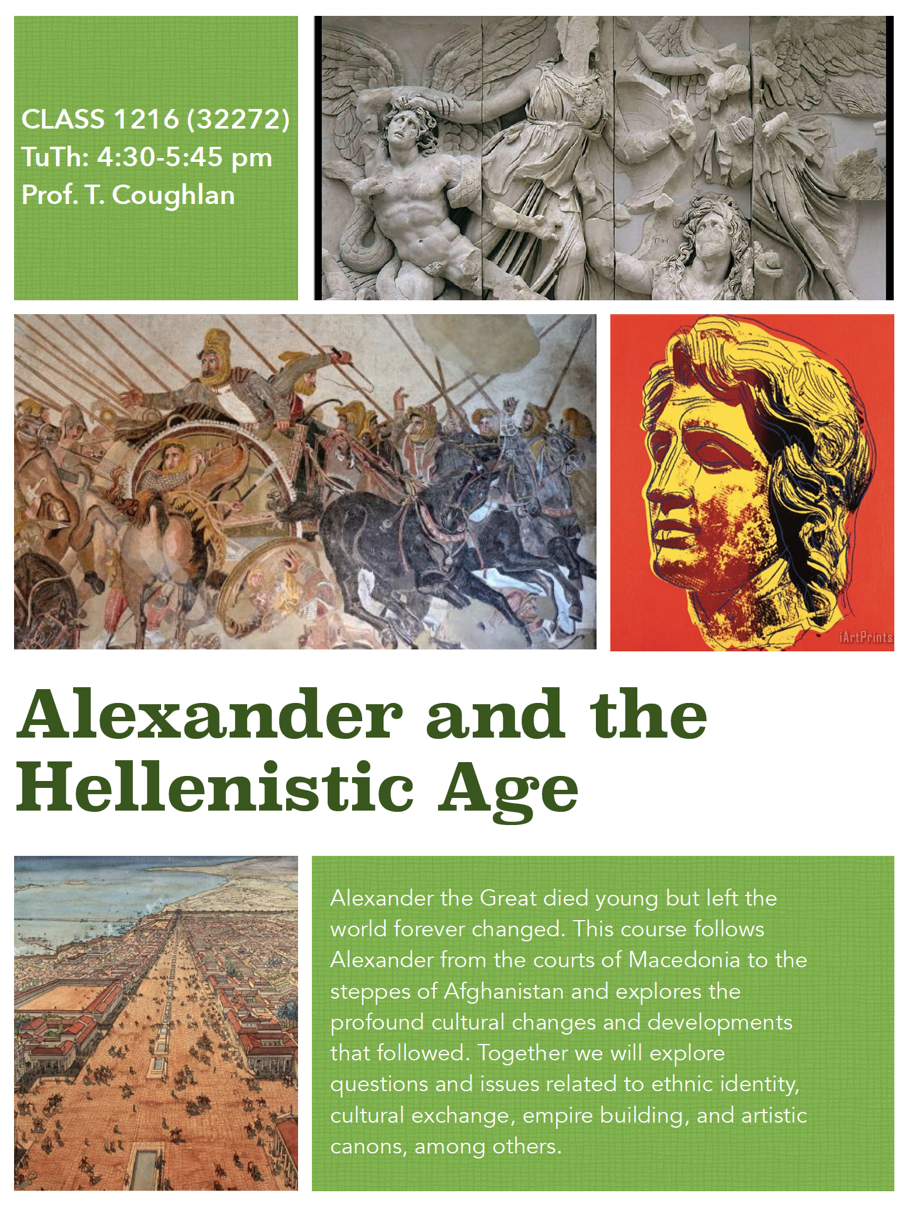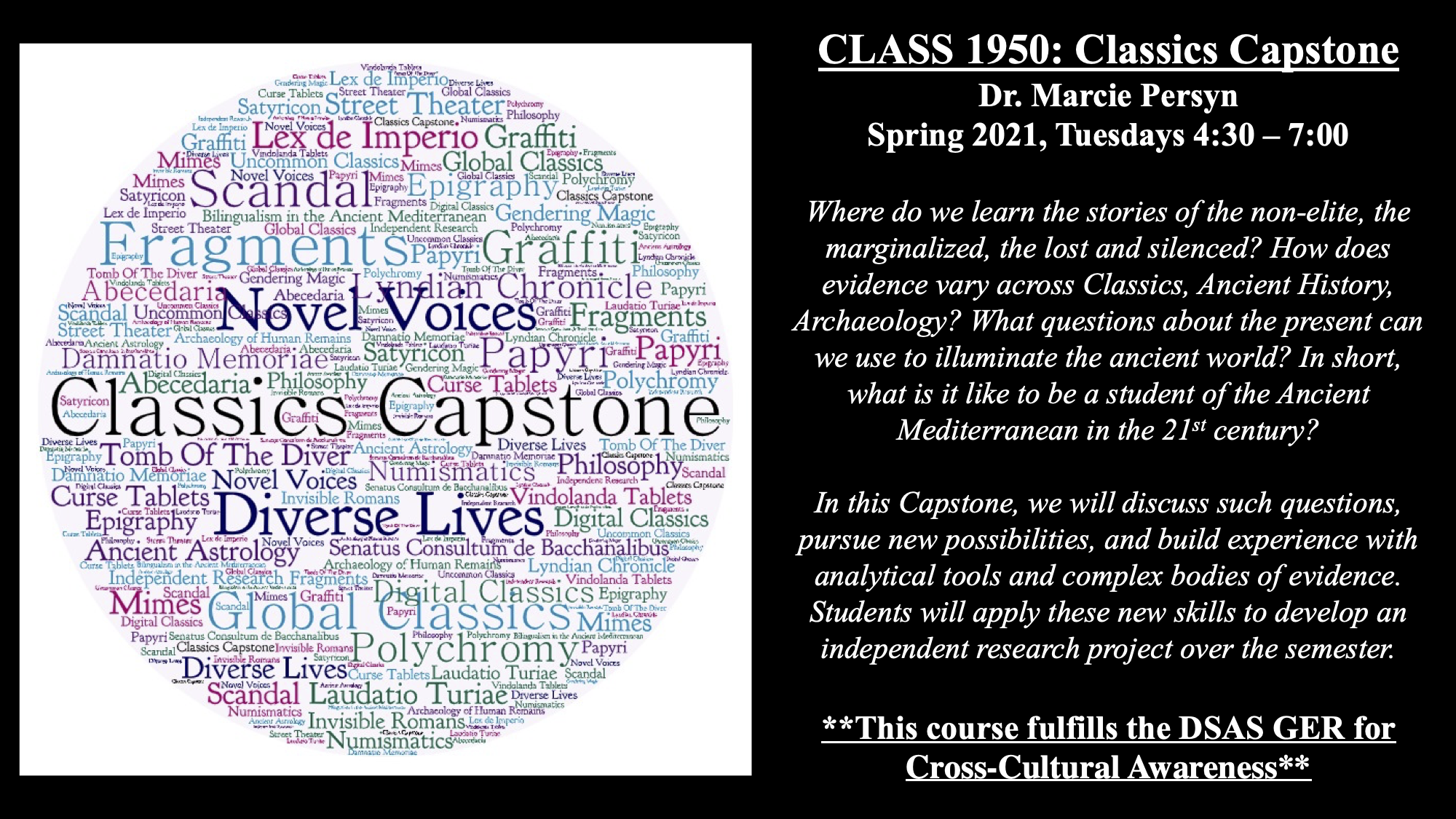New course offerings in Classics for Spring 2021.
The following undergratuade courses have been added for the Spring Term 2021:
This course investigates representations of sex and romantic love in ancient Greece and Rome, considering how ancient literature treats issues like marriage and infidelity, sex work and slavery, homosociality and homosexuality, and consent and rape. We will engage with a variety of genres of ancient literature, from epic and lyric poetry, to drama and philosophy, to funerary epitaphs, handbooks, and novels. We will read the canonical literature of "dead white men," alongside women writers like Sappho and Sulpicia, as well as documentary texts, especially curse tablets and funerary monuments, that paint a picture of lived experiences in the ancient world. We will also read selections from post-classical literature to explore how modern ideas about love, sex, beauty, and desire have been shaped by their representation in ancient texts.
Class Attributes: DSAS Literature General Ed. Requirement, SCI Polymathic Contexts: Humanistic GE. Req., Russian & East European Studies
The ongoing degradation and destruction of our natural environment, driven to a large extent by human factors, is often defined in terms of the loss of biodiversity, the collapse of ecosystems, and climate change. This course will focus on the attitudes and views espoused by human agents that led to these phenomena. We will study the history of human relationships with the natural environment in antiquity (ca. 2800 BCE¿ 400CE) to ask how we may usefully approach ancient thinkers and ideas in a way that allows us to gain a thorough understanding of our present situation, and to evaluate contemporary perspectives and strategies. Ancient readers of King Gilgamesh's conquest of nature, of the Old and New Testament, and of the various treatises, poems, and stories by Greek and Roman writers like Plato, Aristotle, Pliny, and Virgil, could not have envisaged the scale of human impact on the earth in the twenty-first century. Nevertheless, they were acutely aware that they existed as a part of an ecological system. Trying to make sense of the environment in which they found themselves led to broader questions about our human identity and its role in the natural world. We find in the writings of ancient thinkers many questions that are resurfacing in the current debate on environmental ethics: To what extend does true human flourishing require the consumption of material resources? Should a sense of community extend to the land in which we live? What happens if we envisage our natural environment as an independent moral agent? Are we justified in controlling and dominating parts of our environment, or specific types of living creatures? What are the connections between the well-being of the land and social justice? We will examine these questions against their historical background and explore strategies to negotiate current perspectives in a meaningful way.
Class Attributes: Russian & East European Studies
This course deals both with the career of Alexander the Great and with political, social, and intellectual developments in the several successor states into which Alexander's empire dissolved after his death.
Class Attributes: SCI Polymathic Contexts: Global&Cross Cul GE. Req., SCI Polymathic Contexts: Soc/Behav. GE. Req., Russian & East European Studies, West European Studies
This course is designed to encompass, evaluate, and interpret evidence from the ancient world that is commonly left behind in surveys of canonical or traditional works: legal inscriptions, epitaphs, papyri fragments, curse tablets, graffiti, and even human remains are all detritus left behind by the cultures of the Mediterranean, and while they constitute a considerable portion of the ancient evidentiary corpus. We will engage with these "extra-canonical" bodies of evidence through rigorous application of interdisciplinary methodologies in order to complicate our view of the ancient world. Study of these ancient witnesses will reveal the ancient Mediterranean as a vibrant, transcultural, and transchronological environment, filled with the lived experience of more than just the male elite whose works frequently compose literary and cultural histories. The course is meant to serve as a "capstone" applicable for all Classics majors and minors.
Class Attributes: DSAS Cross-Cult. Awareness General Ed. Requirement
Here’s a question: In the 15th/16th centuries, which text from antiquity was most frequently printed and widely read in the Renaissance, apart from the Bible? Homer? — No. Vergil? — No. Plato? — Nope. The answer is: the tractates of Hermes Trismegistus. Nowadays, hardly anyone studies this ‘stuff’ in an academic context, although there are plenty of ‘believers’ in ancient esoteric wisdom out there, interesting people who regard themselves as members of the secret hermetic order, utter silent prayers, and celebrate occult rituals. Just search the net. In this class, we are going to get to the bottom of all this, or, if not that, at least lift the veil a couple of inches and take a peek. We will read and discuss the only Latin hermetic treatise, called the ‘Asclepius.’ The Latin, as far as vocabulary and grammar go, is not terribly difficult, except when it is, because the text is either corrupt or so obscure that much detective work and ingenuity is needed to even get half of the gist. You will learn how to read an apparatus criticus, and much besides. What we have here, I believe, are the remnants of a once flourishing tradition of Egyptian philosophy; the class will not only teach you some Latin, but also introduce you to the intellectual and religious commitments of a world ploughed under by the march of the West to ‘cultural victory,’ such as it was, over once rich and vibrant traditions of northern Africa.




